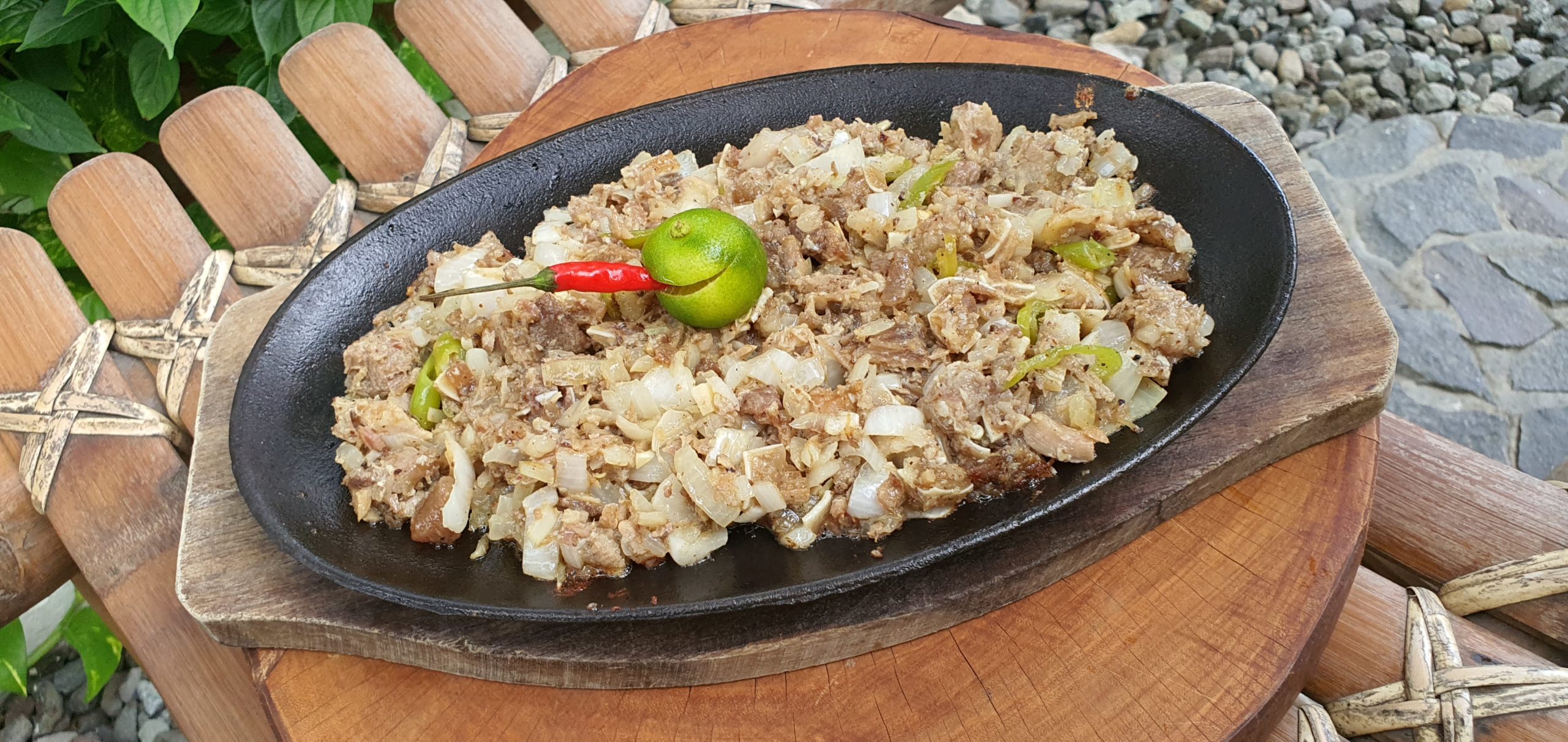‘Sisig’ cooks face uncertain times amid steep onion prices

‘WE DO NOT WANT TO DISAPPOINT’ Pampanga restaurateurs like Apag Marangle, who cooked this popular dish on Saturday, say they have no plans to compromise on taste despite rising prices and scarce supply of onions. —PHOTO BY APAG MARANGLE
CITY OF SAN FERNANDO—“What is sisig without onions?”
Robby Tantingco, executive director of Holy Angel University’s Center for Kapampangan Studies, posed that question amid the surge of onion prices—P700 for a kilo of red onions as of Saturday and P500 for a kilo of white onions—just as the country was about to celebrate the New Year.
“Sisig,” a pork dish that originated in Pampanga province, is indeed facing uncertain times, with onion prices expected to soar further.
Onions are a basic ingredient in the present-day sisig, as chef Claude Tayag once wrote. But there was a time when sisig was not originally relished with that ingredient, according to Tantingco.
Fray Diego Bergaño’s Pampango-Spanish dictionary, published in 1732, described sisig as a salad served with vinaigrette.
Article continues after this advertisementTantingco said it was then made up of fresh fruits or vegetables that women nibbled on and dipped in vinegar and salt in the early stages of pregnancy. At the height of the craving (kagli in Kapampangan, lihi in Tagalog), the expectant mother hankered for boiled pig’s ears soaked in vinegar.
Article continues after this advertisementEvolution
The late Lucia Lagman-Cunanan, known for her chain of “Aling Lucing” restaurants, was credited for reinventing the sisig in the 1970s in her street bar along the old Philippine National Railways in Barangay Agapito, Angeles City. She somehow over-grilled the pig’s cheeks after boiling it for the usual barbecue.
She decided to cut it into small pieces instead of disposing it, adding these to chopped pig’s ears and mincing that combination.
This has become her version of the sisig, which made good sales as a bar chow.
Bar owner Benedict Pamintuan stuck with Lagman-Cunanan’s version but served the appetizer on a sizzling plate for a crunchy finish during beer drinking.
The Trellis Restaurant in Quezon City, owned and operated by brothers Mario and Renato Tayag and their cousin Dan Tayag, elevated the dish by adding chopped boiled chicken liver.
The sisig can go three ways in the light of the exorbitant onion prices, Tantingco said. “The production of sisig will be minimized or its prices will increase or it can be reinvented without the onions,” he said.
On Saturday, chef Manuela Cherry Pasion Tan of Apag Marangle, a restaurant located at the boundary of Guagua and Sta. Rita towns in Pampanga, raised the price of their sisig to P355 per sizzling plate from P315 just last Friday.
Tan turned to using red onions back when the price and supply of white onions ran out.
Now she has to raise the price, if by as little as P50, but still maintain the flavor by putting in 100 grams of red onion per serving.
“We do not want to change our ingredients, or sacrifice its quality. We are a proud Kapampangan restaurant,” she said.
“People from different places go to Pampanga, to our resto in particular, to taste authentic Kapampangan sisig. We do not want to disappoint them.”
Reinventing the dish
In Betis district, Guagua town, food stall owner Raymundo Ocampo has started substituting onions with leeks, also called “sang” in Kapampangan.
“The white part of the string tastes closer to onions,” said Ocampo, who is able to sell sisig at P50 for a small bowl of five teaspoonfuls.
Ocampo said he preferred using smaller red onions—sibuyas Tagalog—because it is spicy, as he learned from the late Apo Cion Rivera, one of the older sisig cooks in the old district. Aling Lucing’s branches still sell the dish at P230 and P250 per plate on Saturday. INQ
RELATED STORIES
Hot plates readied as ‘sisig’ leads Pampanga city’s bid for recognition